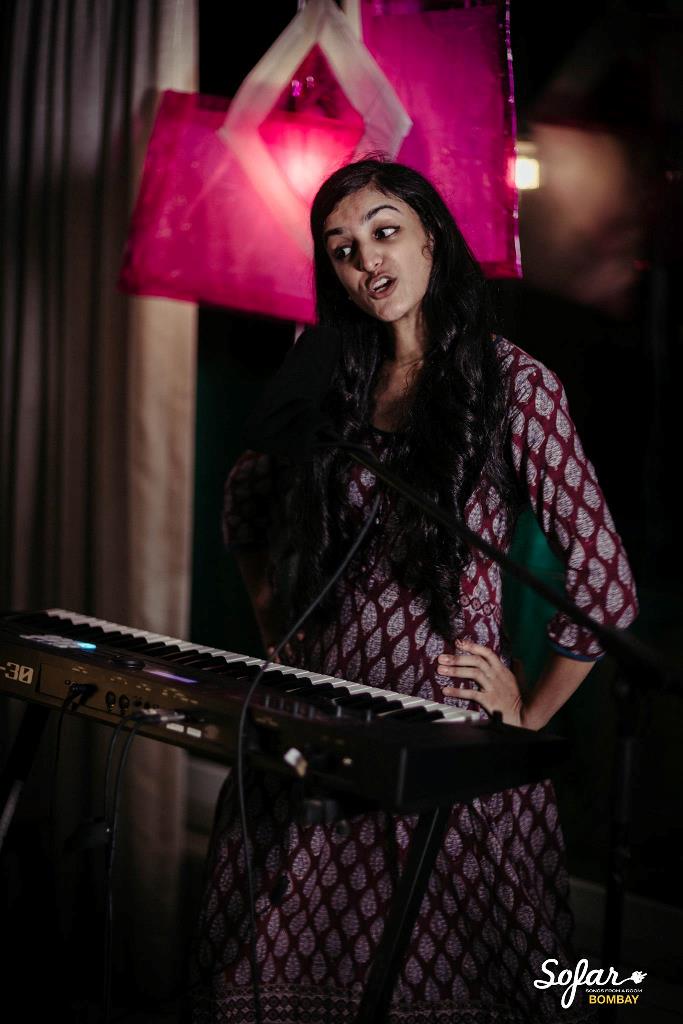It is a fairly simple idea – three artistes, an atypical venue and a carefully curated audience.
Sofar Sounds, short for Songs From A Room, is a global initiative that hosts intimate secret gigs. Started in London in 2009, it has grown to 400 cities across the globe and was launched in India in late 2015 amidst a booming independent music scene. The first Sofar Sounds, in its current format, was held in Bengaluru and has carved out a niche for itself in 13 Indian cities – despite the mystery around its location and the artistes’ line-up, or perhaps because of it.
For Sofar Sounds, the aim is to bring music lovers together and create a space in which everyone feels like they belong. “The festival experience is meant to be so much more than just music,” said Varun Mehra, Sofar Sounds Pune’s city-leader. “There’s a lot involved – travelling, socialising, etc, but this is largely about music and it’s mainly a local scene. The scale is smaller and it is meant to give a bit of everything while keeping the music as the focus.”

Arul Kacker, Sofar Sounds Mumbai’s city-leader, echoed the thought – “A lot of people who usually wouldn’t step out for shows and fests for the fear of not fitting in are willing to come for a Sofar Sounds gig and this just is what makes the community grow.”
While organising Sofar Sounds’ first gig in Mumbai in May 2016, getting the word around wasn’t much of a challenge. The message went out predominantly by word of mouth and the show saw 200 guest applications against a capacity of 80 and, according to Kacker, the number of applicants has only grown ever since.
New favourites
To attend a show, you have to apply on the website. Sofar Sounds teams receive several hundred applications and the cut-off ranges between 40 and 100, depending on the venue. The final guest list is not put together by a draw of names or lottery but by meticulously going through all the applications. Kacker said that the attempt is to keep the guest list as “egalitarian” as possible. The crew tries to make sure all demographics are represented.

“This process is special because nobody feels out of place,” he said. “It’s heartwarming to see, say, a rapper perform to a teenager and a 50-year-old mother, all in the same room and Sofar Sounds makes that happen.” This “intimate vibe” calls for a small crowd which allows for the music to take centre stage, so that the artists get undivided attention and the audience is able to fully absorb an evening of live music.
The secrecy around the line-up and venue is essential for a Sofar Sounds gig because the idea is to not let a certain venue or an artist become the determining factor for people to attend. This creates space for artists to reach out to new audiences and for audiences to discover an artist they may not have known of. Bhrigu Sahni, singer-songwriter and a five-time Sofar Sounds alumnus said, “As performers, we are always guaranteed a room full of listeners who are there just for the music. We play to an audience that hasn’t necessarily heard our music before. This is great for broadening our listener base and to see how people react to music that they’ve never heard before.”

For the love of it
Sofar Sounds is a non-commercial engagement and intends to remain that way. From volunteers and hosts who offer their spaces as venues to artists and sound and video engineers, there is no money involved. Guests may pay what they like and these donations are used towards covering production costs. This, Varun says, becomes a driving force in shaping a community. “When you work in a format where no money is involved, then only those who are really interested come on board,” he said.
Raghav Srivastava, Sofar Sounds Delhi’s artist relations manager, said, “It’s heartwarming to see that people are so gracious to open up their homes for about 50-60 strangers who come and attend a gig.” He added that most people who offer to host have attended Sofar Sounds shows in the past before and want to get involved.
Aditi Ramesh, a lawyer-turned-musician and Sofar Sounds alum, said, “Sofar Sounds is different from any other gig because of the connection the performer feels with every member of the audience. The listeners come specifically for the music and it’s a special experience being able to share not just the music, but also [the] songwriting process, story behind individual songs and a bit of you with everyone in the room.”











